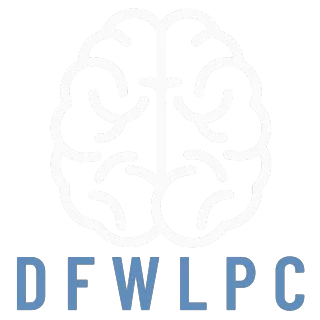DFWLPC Psychotherapy Specialties
We offer services that help with the following issues and more...
Anger
Borderline Personality Disorder
Cope with Stress
Stress is America’s leading health problem according to the American Institute of Stress. Stress triggers our fight or flight response as a way to protect oneself. It can impact overall physical health resulting in physical symptoms. Long-term stress can contribute to both mental and physical health problems.
Stress can be grouped in to 4 categories
Physical stress: Physical stress is a form of stress that exerts an impact on the body. For example: trauma (injury, infection, surgery), illnesses caused by viruses, fatigue, inadequate oxygen supply, low blood sugar (hypoglycemia), hormonal or biochemical imbalances, dietary stress (nutritional deficiencies, unhealthy eating habits), dehydration, dental issues, and musculoskeletal misalignment or imbalances. Prolonged exposure to physical stress can present as symptoms like fatigue, headaches, and muscle tension and lead to various complications, including high blood pressure, compromised immune functionality, and elevated susceptibility to alcohol and substance dependency.
Psychological: Psychological stress refers to a form of stress that impacts an individual's mental and emotional state, influencing their overall well-being. It arises from various events or circumstances, including work-related pressures or the loss of someone dear. Psychological stress often manifests through symptoms like anxiety, depression, and challenges in effectively managing ongoing stress within one's daily life.
Psycho-social: Refers to challenges in personal relationships, such as difficulties with partners, siblings, children, family members, colleagues, and employers. It can also encompass a lack of social support and insufficient resources for basic survival, as well as experiencing the loss of employment, investments, savings, loved ones, bankruptcy, home foreclosure, and feelings of isolation.
Psycho-spiritual: Occurs when individuals experience no joy in efforts and a misalignment with their fundamental spiritual beliefs due to a crisis in their values, meaning, and purpose.
Divorce
Friendship Concerns
Loneliness
Psychosomatic Therapy
What is Somatic Therapy? "It's a treatment focusing on the body and how emotions appear within the body," Baker explains. "Somatic therapies posit that our body holds and expresses experiences and emotions, and traumatic events or unresolved emotional issues can become 'trapped' inside." according to Amanda Baker, director of the Center for Anxiety and Traumatic Stress Disorders and a clinical psychologist.
Somatic therapy sessions vary widely by practitioners. Generally, they include mindfulness, talk therapy, and physical techniques like deep breathing, relaxation exercises, and meditation to help relieve symptoms. For more information visit https://www.psychologytoday.com/us/therapy-types/somatic-therapy
Relationships and Dating
Self-criticism
Self-esteem
According to Dr Neel Burton M.D. "Self-confidence and self-esteem often go hand in hand, but they aren't one and the same thing." and he goes on to say "self-esteem is our cognitive and, above all, emotional appraisal of our own worth. More than that, it is the matrix through which we think, feel, and act, and reflects and determines our relation to our self, to others, and to the world."
Substance Abuse and Addiction
Note: Not responsible for the content, claims, or representations of external websites.


